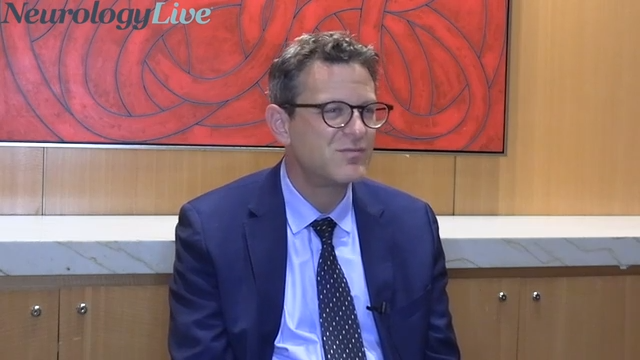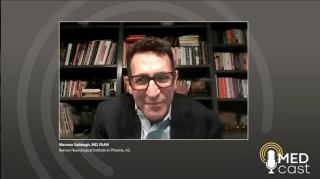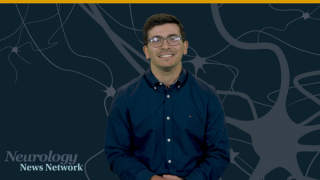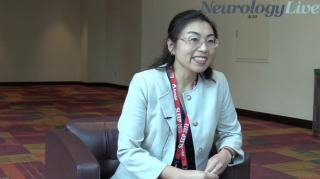
Dementia and Alzheimer Disease
Latest News
Latest Videos

CME Content
More News

Between ages 65 to 69, gene carriers of APOE ε4 could detect an average of about 3.2 of the smells presented, compared with about 3.9 smells for noncarriers of the gene variant.

Virginia Gao, MD, PhD, a movement disorders fellow at Weill Cornell Medicine, discussed several topics related to the use of biomarkers in the prodromal stages of neurodegenerative disorders like Parkinson disease.

Here's some of what is coming soon to NeurologyLive® this week.

A recent analysis showed a form of tau that could serve as a biomarker to track and explore whether investigational tau-based drugs are effective against Alzheimer disease.

Test your neurology knowledge with NeurologyLive®'s weekly quiz series, featuring questions on a variety of clinical and historical neurology topics. This week's topic is headache and migraine.

In the largest meta-analysis of patients with poststroke seizures, findings showed that those with early seizures had a greater mortality risk than those with late.

Among 443 episodes in 149 patients treated with different doses of BXCL501 over 12 weeks, the 60 mcg dose showed a reduction in agitation for the first and all treated episodes at 1 and 2 hours.

Neurology News Network for the week ending September 23, 2023. [WATCH TIME: 3 minutes]

Take 5 minutes to catch up on NeurologyLive®'s highlights from the week ending September 22, 2023.

Leigh Charvet, PhD, professor of neurology at the NYU Grossman School of Medicine, talked about a trial that aims to address cognitive impairment in patients with long COVID through a unique, remote, and home-based treatment approach.
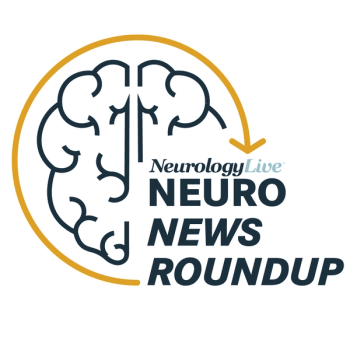
In honor of World Alzheimer Day, held September 21, 2023, get caught up on some of the latest news in Alzheimer disease as the NeurologyLive® team shares some of our data updates.

A study examining eligibility criteria for Alzheimer agent trials showed that a significant proportion of older adults with early cognitive impairment may not qualify for these therapies because of health conditions and other factors.

In a recent multisite analysis of 361 patients with REM sleep behavior disorder, 84% had neurological abnormalities in at least one domain observed.

The associate professor in the department of neurology at the University of Rochester provided insight on her presentation on psychosis in Parkinson disease and related disorders given at the 2023 ANA Annual Meeting.

The AIRAscore may help optimize the diagnostic process of neurodegenerative disorders by comparing brain structures with collected age- and gender-specific qualitative data samples.

Here's some of what is coming soon to NeurologyLive® this week.

Test your neurology knowledge with NeurologyLive®'s weekly quiz series, featuring questions on a variety of clinical and historical neurology topics. This week's topic is Alzheimer and dementia.

Neurology News Network for the week ending September 16, 2023. [WATCH TIME: 3 minutes]

Alzheimer Agent Blarcamesine Shows Significant Reduction of Amyloid-ß Biomarkers in Phase 2b/3 Trial
Positive findings from a phase 2b/3 study investigating blarcamesine, an investigational agent, demonstrated efficacy among patients with early Alzheimer disease.

Take 5 minutes to catch up on NeurologyLive®'s highlights from the week ending September 15, 2023.

Over a 2-year treatment period, patients on ALZ-801 demonstrated significant correlations between effects on volumetric MRI outcomes and 3 cognitive scales, suggesting cognitive gains are a result of preservation of brain structures from neurodegeneration and atrophy.

Findings from a recent exploratory study suggest that assessing daily functioning in a more sensitive way may identify Alzheimer disease before a patient develops more pronounced cognitive changes.

The professor of neurology at the NYU Grossman School of Medicine discussed the RECOVER-NEURO trial that is focused on improving cognitive dysfunction in patients with long COVID symptoms. [WATCH TIME: 5 minutes]

The genetic epidemiologist at the University of Pennsylvania discussed a recent study that highlighted the importance of diverse samples in genetic research for Alzheimer disease in helping to uncover hidden genetic risk factors. [WATCH TIME: 2 minutes]

The combined preclinical and clinical data with neflamapimod suggest the therapy has potential to be the first disease-modifying treatment for dementia with Lewy Bodies, demonstrating a positive impact on cognition, function, and mobility.





